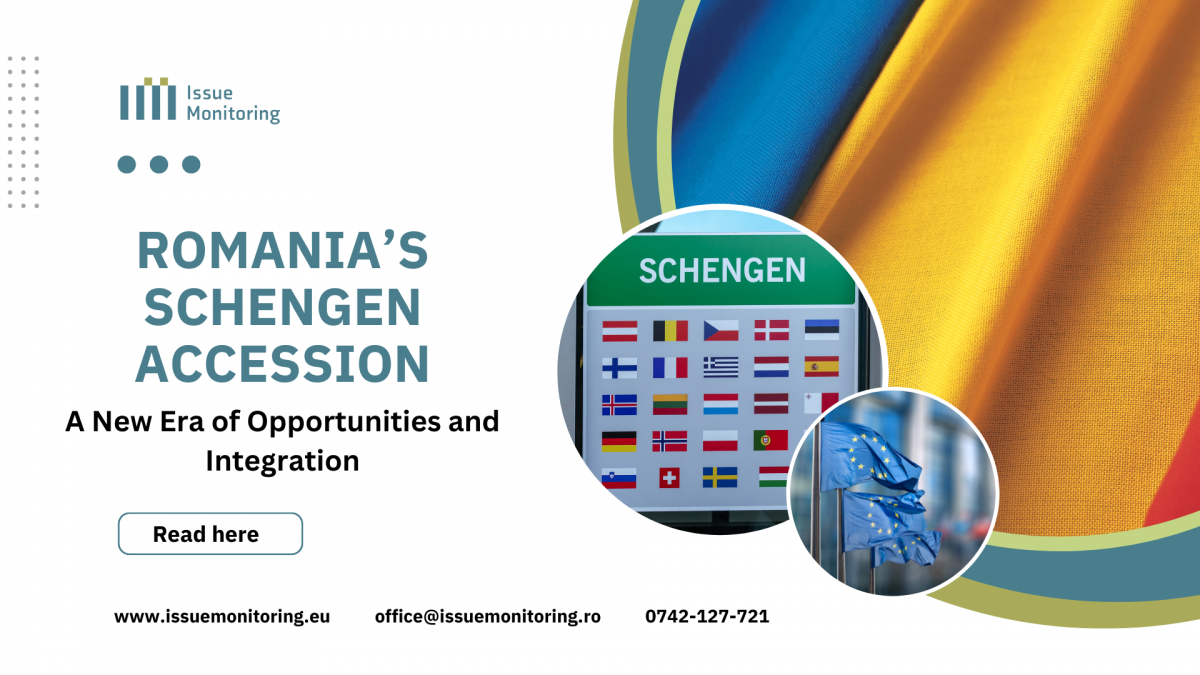
Romania’s full accession to the Schengen Area, starting January 1, 2025, represents a transformative moment for the country and the European Union. This long-awaited development brings significant advantages across economic, social and political dimensions.
Economic Advantages for Romania
- Enhanced Trade and Reduced Costs
The removal of border checks eliminates the lengthy waiting times that have cost Romania billions of euros annually. Long queues at borders, often stretching for kilometers, have hampered supply chains and driven up transportation costs. With these barriers removed, cross-border trade will flow more efficiently, boosting economic productivity and reducing operational expenses for companies.
- GDP Growth and Investment Appeal
Improved trade conditions are expected to contribute to visible GDP growth in the coming years. Additionally, unrestricted access to the Schengen Area enhances Romania’s appeal to foreign investors by offering stability, a larger connected market, and faster logistics. Sectors such as manufacturing, retail, and technology are likely to benefit most from this integration
Social and Mobility Benefits
- Free Movement for Citizens
Romanian citizens will enjoy unrestricted travel across Schengen countries, simplifying access to work, academic exchanges, and leisure opportunities. The removal of bureaucratic barriers enhances quality of life and strengthens Romania’s ties with other EU member states.
- Boosted Tourism and Cultural Exchange
Easier travel conditions are expected to increase tourism flows both to and from Romania. The country’s rich cultural and natural attractions will attract more visitors, driving national tourism revenues and enhancing Romania’s global image as a travel destination.
Regional and EU-Wide Implications
- Strengthened Regional Security
Romania’s inclusion in the Schengen Area brings strategic advantages for the EU’s eastern borders. By integrating with the Schengen Information System (SIS), Romania gains enhanced tools to monitor and combat illegal activities such as smuggling, organized crime, and unauthorized migration. These improvements bolster regional security and establish Romania as a key player in safeguarding the EU’s external borders.
- Positive Ripple Effects in Southeastern Europe
By showcasing successful integration, Romania strengthens ties with Southeastern Europe, encouraging collaborative efforts and shared security initiatives.
Political and Symbolic Significance
- Addressing Euroscepticism
For years, Romania’s blocked accession fueled Eurosceptic narratives, with claims that Romanians were treated as second-class citizens within the EU. This decision represents a turning point, reinforcing trust in the EU’s fairness and inclusivity. It sends a clear message that Romania is a valued and equal member of the European family.
- Strengthened European Identity
The decision by the EU Justice and Home Affairs Council validates Romania’s progress in meeting Schengen requirements and also underscores its alignment with European values of unity and cooperation. This recognition elevates Romania’s reputation on the international stage and bolsters its influence within EU decision-making.
Conclusion: A Step Towards a Stronger Europe
Romania’s accession to the Schengen Area is not merely a technical adjustment; it is a profound milestone with wide-reaching implications. Economically, it promises growth and investment. Socially, it enhances mobility and connectivity. Politically, it reaffirms Romania’s commitment to European integration.
As we embrace this new chapter, the focus now shifts to maximizing the benefits of this achievement for the collective prosperity of Romania, its citizens, and the European Union as a whole.
Are you working in Public Affairs or the legal field? Issue Monitoring keeps you updated on legislation and helps you save up to 30 hours per month. Request your free demo here!


